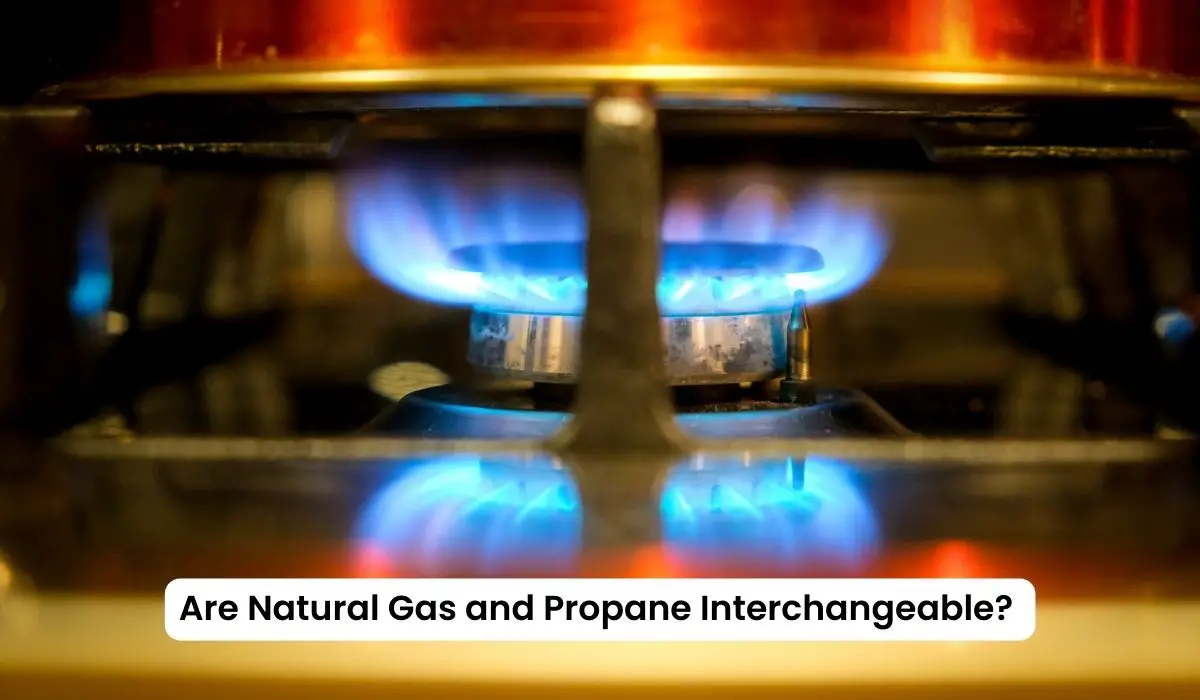Households and industries commonly use natural gas and propane as fuels to provide heat and energy. With their clean-burning properties and versatility, both fuels have become integral to our modern way of life. However, as a consumer or a business owner, you might wonder whether natural gas and propane are interchangeable and, if so, what implications they might have on your energy choices.
In this article, we will delve into natural gas and propane characteristics, explore their similarities and differences, and determine whether they can be used interchangeably.
So, let’s unravel the mystery surrounding these fuels and shed light on whether natural gas and propane are truly interchangeable.
Table of Contents
Are Natural Gas and Propane Interchangeable?
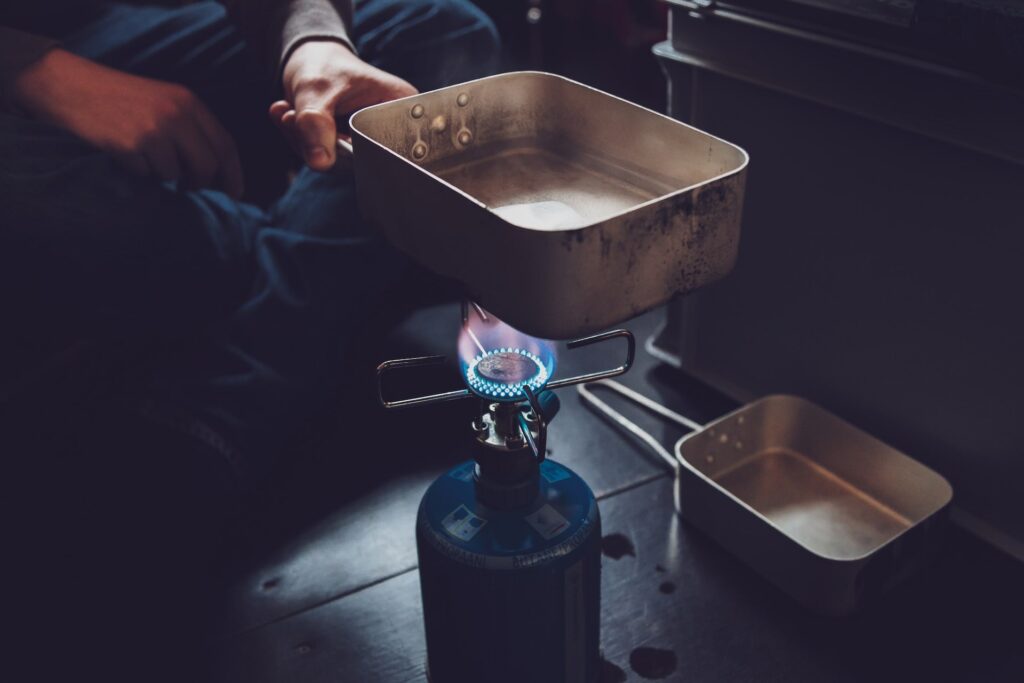
To understand whether natural gas and propane are interchangeable, it is important to delve into the characteristics and distinctions of these two fuel sources. Although both have a similar purpose, they have notable differences, which means they cannot be used interchangeably in all cases.
First, let’s take a closer look at natural gas. Fossil fuel natural gas is primarily composed of methane. It is extracted from underground reservoirs and distributed through pipelines to homes, businesses, and industries. Natural gas is highly combustible and is commonly used for heating, cooking, and powering various appliances.
On the other hand, propane is a type of liquefied petroleum gas (LPG) produced through refining crude oil or processing natural gas. It is stored and transported in its liquid state under moderate pressure. Propane is widely used in residential, commercial, and industrial applications, including heating, cooking, and fueling vehicles.
While natural gas and propane are energy sources for similar purposes, their chemical compositions and physical properties differ. One of the key distinctions lies in the energy content. Propane contains more energy per unit volume than natural gas, meaning that a smaller volume of propane can generate a greater amount of heat than the same volume of natural gas.
Moreover, the pressure at which natural gas and propane are supplied varies. Natural gas is delivered through pipelines at relatively low pressure, whereas propane is stored as a liquid under higher pressure. This pressure difference requires specific equipment and appliances to handle each fuel type.
Compatibility becomes crucial when using natural gas or propane for heating or cooking appliances. Many appliances, such as stoves, ovens, and water heaters, are specifically designed to operate with natural gas or propane. Some manufacturers may offer conversion kits that allow certain models to switch between the two fuels. However, it’s important to note that not all appliances are convertible, and attempting to use the wrong fuel can lead to safety hazards and equipment damage.
Additionally, the composition of natural gas and propane differ in combustibility. While natural gas is lighter than air and tends to dissipate quickly in the event of a leak, propane is heavier than air. It can accumulate in enclosed spaces, posing a higher risk of explosion or fire if improperly handled.
To summarize, although natural gas and propane share similar functions, they are not interchangeable due to differences in energy content, pressure requirements, and appliance compatibility. It is crucial to consult manufacturers’ guidelines and seek professional assistance when considering fuel conversions or using appliances with alternative fuel sources. Adhering to safety regulations and using the correct fuel for each appliance ensures efficient and safe operation in residential, commercial, and industrial settings.
How To Determine Your Stove Operates On Propane or Natural Gas:
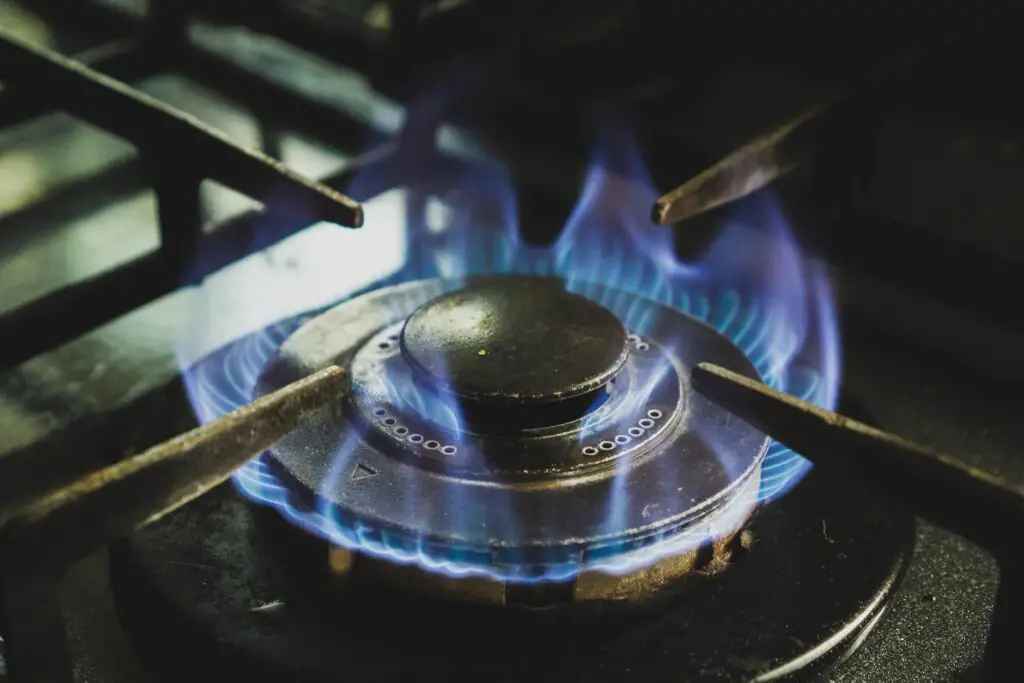
Determining whether your stove operates on propane or natural gas is essential to ensure your appliance’s safe and efficient use. Thankfully, there are rare easy measures you can take to identify the type of fuel your stove is built to use.
First and foremost, it is always a good idea to refer to the instruction manual accompanying your stove. The manual should provide clear information about the type of fuel your stove is compatible with. Look for specific instructions or indications regarding propane or natural gas use. The manual may also guide any necessary conversions or compatibility issues.
If you no longer have the instruction manual or don’t explicitly state the fuel type, another way to determine the fuel compatibility is by examining the manufacturer’s label on the stove. This label is usually located on the back or underside of the appliance and contains important information, including the model number, serial number, and specifications. Look for any indications or symbols that indicate whether the stove is designed for propane or natural gas use.
It is important to note that stoves can be used in different ways with these two fuel types. With proper conversion, attempting to use natural gas in a propane stove, or vice versa can lead to safety hazards, efficient operation, and potential damage to the appliance. While conversion kits allow certain stove models to switch between propane and natural gas, it is a complex DIY task. If you’re thinking about changing the fuel type of your stove, it’s highly advised to seek the help of a professional or certified technician.
Expert advice and assistance are crucial when it comes to fuel conversions. An experienced professional can assess the compatibility of your stove, recommend the appropriate conversion kit if available, and ensure that the conversion process is carried out safely and effectively. They have the knowledge and expertise to handle the technical aspects of converting your stove to a different fuel type, ensuring that the appliance functions optimally and meets safety standards.
What Happens If You Use Propane in a Natural Gas Range?
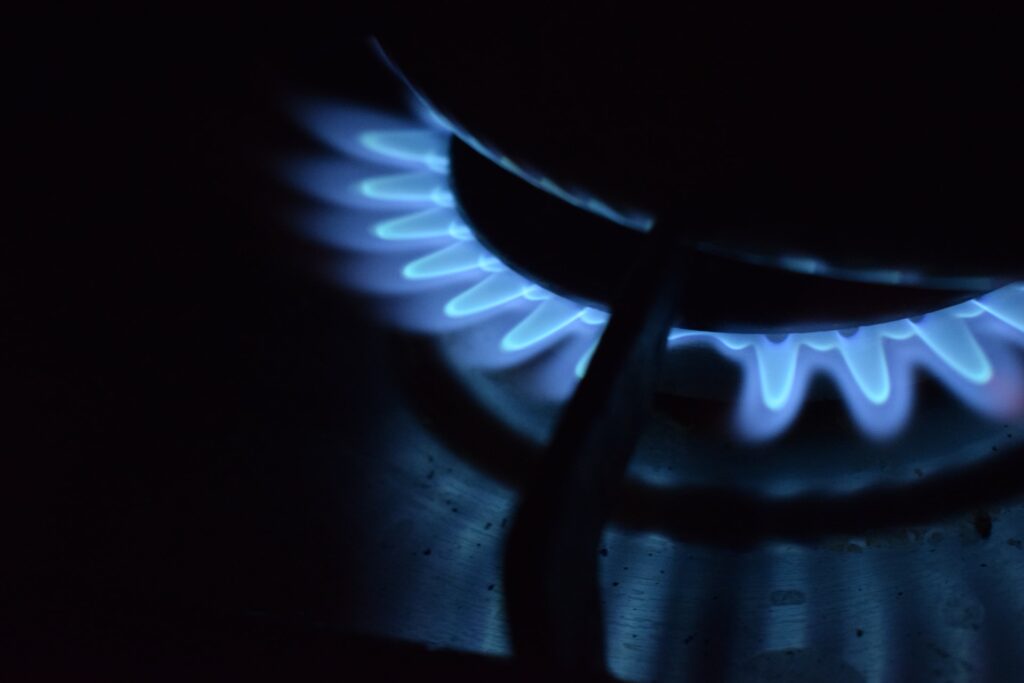
Using propane in a natural gas range without proper conversion can lead to potential problems and safety hazards. Understanding the differences between natural gas and propane is important to grasp the implications of such a mismatch.
When propane is used in a natural gas range without the correct conversion procedure, one of the immediate consequences can be the production of larger flames. The higher heat output of propane combined with a natural gas range design can result in too large and uncontrollable flames. This poses a serious safety risk, as the flames can extend beyond the burners and cause fires or injuries.
Apart from the issue of larger flames, using propane in a natural gas range can lead to the failure of the appliance itself. The design and components of natural gas and propane appliances differ to accommodate the specific characteristics of each fuel type. Attempting to use propane in a natural gas range can strain the appliance’s components, potentially leading to malfunctions, breakdowns, or permanent damage.
Moreover, using propane in a natural gas range increases the risk of gas leaks. The mismatch in pressure can cause the fittings and connections to become loose or even disconnected, leading to the escape of gas. Gas leaks are hazardous as they can result in fire or explosions, threatening life and property.
Incomplete gas combustion is another concern when using propane in a natural gas range. Propane requires a different air-to-fuel ratio for complete combustion compared to natural gas. When propane is used in a natural gas range without the appropriate adjustments, incomplete combustion can occur. Incomplete combustion can generate carbon monoxide, a toxic and odorless gas. High exposure to this gas can result in carbon monoxide poisoning, which can be fatal.
Lastly, the combination of using propane in a natural gas range without conversion can potentially lead to an explosion. The mismatched pressure, improper combustion, and increased risk of gas leaks create a hazardous environment where an explosion could occur, causing significant damage and endangering the occupants of the premises.
Can You Convert Natural Gas Stove To Propane?
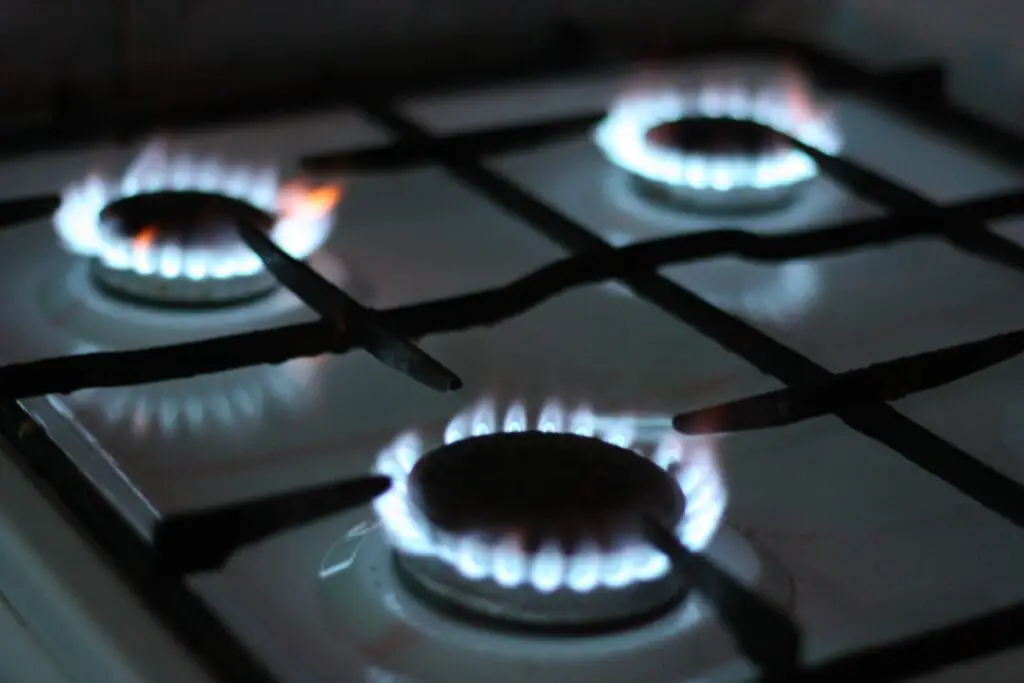
When switching from a natural gas stove to a propane stove, the first step is to check the label on the stove to ensure it is compatible with different types of gas. Some stoves are designed to handle this conversion, so confirming this information is important.
If your stove can be converted, it should come with a conversion kit as part of the purchase. The conversion process is typically best done with the assistance of an expert, who can ensure that the conversion is carried out safely and correctly.
Converting a gas stove from natural to propane requires attention to detail and expertise. Following the manufacturer’s instructions and seeking professional help, you can successfully make the switch and enjoy the benefits of using propane on your stove.
How Do You Convert Natural Gas Stove To Propane?
Converting a natural gas stove to propane involves several steps to ensure a smooth transition. The process typically involves adjusting the gas supply and making necessary changes to the appliance.
The first step is to determine if your stove is convertible. Check the manufacturer’s label or consult the user manual to see if it is compatible with natural gas and propane. If the stove is convertible, it should come with a conversion kit that includes the necessary components for the switch.
The key components that need to be modified are the gas orifices and pressure regulators. Propane requires a higher gas flow rate than natural gas, so the orifices, which control the gas flow, need to be resized accordingly. Additionally, the pressure regulators should be adjusted to accommodate the higher pressure of propane.
It’s crucial to follow the manufacturer’s instructions during the conversion process. The conversion kit will provide specific guidelines on safely making the adjustments. It’s recommended to seek professional assistance to become more familiar with gas-related modifications or clarify the process.
Before starting the conversion, turning off the gas supply and ensuring the stove is completely cooled down is important. Working with gas appliances can be dangerous, so taking proper safety precautions and avoiding any potential hazards is essential.
Once the necessary adjustments have been made, test the stove to ensure it functions correctly. Check for gas leaks using a soapy water solution on the connections and valves. If you detect any bubbles forming, it indicates a leak, and you should immediately turn off the gas supply and seek professional help.
Converting a natural gas stove to propane requires careful attention to detail and adherence to safety guidelines. By following the manufacturer’s instructions and considering professional assistance, you can successfully convert your stove to propane and enjoy the benefits of using this alternative fuel source.
How Much Will It Cost To Change the Natural Gas Stove to Propane?

The cost of converting a natural gas stove to propane can vary depending on several factors. Here are some key considerations that can impact the overall cost.
1. Conversion Kit
A conversion kit is essential for the switch from natural gas to propane. The price of the kit will vary based on the brand, model, and compatibility with your specific stove. On average, conversion kits can range from $50 to $200.
2. Professional Assistance
It’s highly recommended to seek professional help for the conversion process, especially if you’re unfamiliar with gas-related modifications. Hiring a licensed technician or plumber will incur additional costs. The conversion cost varies based on where you are and the level of complexity involved. Generally, it falls between $100 to $300 or higher.
3. Additional Parts
Sometimes, you may need to purchase additional parts apart from the conversion kit. This could include gas regulators, orifices, valves, or other components necessary for the conversion. The cost of these parts will depend on your stove’s make and model and any specific requirements.
4. Labor Costs
If you decide to hire a professional for the conversion, labor costs will be a part of the overall expenses. Technicians typically charge an hourly rate. The total cost will be determined by the level of difficulty involved in the conversion process and the time needed to finish the task.
5. Local Codes and Permits
It’s important to check with your local authorities if any specific codes or permits are required for converting your gas stove. Obtaining permits or complying with regulations may come with extra fees.
Remember, these are just general estimates, and the cost can vary. Getting quotes from multiple professionals and comparing prices is advisable to ensure a fair deal. Additionally, consider the long-term benefits of switching to propane, such as potential energy savings and the availability and cost of propane in your area.
Also Read: Do You Boil Water Before Adding Potatoes
Conclusion:
At the end of this article, it is clear that while natural gas and propane are commonly used as fuel sources, they are only interchangeable with proper adjustments. Natural gas and propane have various pressure levels and gas flow requirements, making it necessary to modify appliances to ensure safe and efficient operation.
Converting a natural gas appliance to propane involves resizing gas orifices, adjusting pressure regulators, and potentially changing other parts. Following manufacturer instructions or seeking professional assistance is crucial to ensure the conversion is done correctly. By understanding the differences between natural gas and propane and taking the necessary steps, individuals can successfully switch between these fuel sources and enjoy their benefits.
FAQs
Why is Natural Gas Cheaper Than Propane?
Natural gas is typically cheaper than propane because it is more abundant and easier to extract. Additionally, the infrastructure for natural gas distribution is more extensive, leading to lower transportation costs than propane.
Are Natural Gas and Propane the Same?
No, natural gas and propane are not the same. They are both types of gas used as fuel, but they have different compositions and energy values. Propane has a higher energy content and requires different equipment for storage and use compared to natural gas.
Does Natural Gas Taste Better Than Propane?
Both natural gas and propane are odorless, but an odorant is added to make them detectable in case of leaks. Therefore, in terms of taste, there is no difference between natural gas and propane since they are essentially odorless and tasteless.
